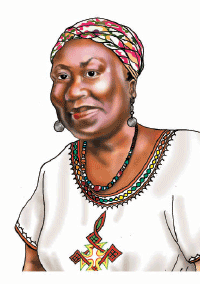Within the past few days, I have had to take on some of my social media contacts over their (gentle) rebuke of me for, in their judgement, showing more concern about happenings in foreign lands than in our own country.
On June 13, 2016, set aside to mark the World Albinism Day, I had tweeted about that condition, stating that albinos were not fetish objects and should not be treated as such. I made particular reference to Malawi, given that country’s terrible reputation of being a place where albinos, especially babies and children, are regularly abducted and murdered because of fetish beliefs that their bones bring good luck.
Somebody had responded to my tweet, asking me to leave Malawi alone and concentrate my thoughts on the situation in Nigeria. In fact, he accused me (falsely) of not expressing concern about happenings at home and caring more about what was happening outside. My response was: “I am Nigerian, I am African, and a citizen of the world. We have God-given capacity for large-heartedness.”
The second occurrence was the horrific case of the murder of 49 people and wounding of several others in a gay club in Orlando, Florida, United States of America (U.S.A.), by an apparently deranged individual in the early hours of Sunday, June 12, 2016. I expressed sadness over the disaster, saying that the whole world mourned in solidarity with the American people. A response I got was to the effect that disasters were happening in Nigeria too and I was somewhat rebuked for expressing particular concern over what was happening in far away U.S.A. I replied that I was mindful of the fact, but that we share a common humanity with people wherever they live and therefore should be touched by their plight.
My respondents’ line of reasoning needs to be probed, and it reminds one of some criticisms that attended Nigeria’s leadership role in ECOWAS Monitoring Group (ECOMOG) during the war in Liberia, for example. The feeling was expressed in certain quarters that there was no reason Nigeria should be spending a large sum of money in the interest of another country while there was much in our own land that money was needed for. Like the Yoruba adage goes, omo eni ko se idi bebere ka fi ileke si ti omo elomiran? (do you leave your own child’s waist bare and go on to adorn another person’s child’s waist with beads?). While there might even be an argument to be held as to the reasonableness or otherwise of spending tangible resources for others while your own people are equally in need, how about the case of intangible “resources” like compassion and goodwill? Do you deplete your pool of compassion and end up impoverishing your own people by “using” it in the interest of others? Is that a justifiable line of reasoning; and if not, why has it arisen?
To my mind, this kind of attitude (which says: Look, we are suffering here too; don’t be so concerned about other places) is probably a cry for help from a particular segment of the society. There is no doubt that much suffering exists currently in the land, no thanks to the economic downturn which has affected all but the most well-padded heels in the country. From those government workers whose salaries have not been paid for six months or more, to people in the private sector who have had to be retrenched due to the slow-down of the economy, many Nigerians are suffering untold hardship.
A new category of “beggars” has thus emerged in the land, forced to call upon family and friends to help even with feeding themselves and their children – and they are very angry. They constitute a class one might refer to as “the new poor”. They have now used up the little they had put aside for the rainy day, and some have even resorted to selling off their belongings. And they do not sense that people care at all, or sufficiently, about their plight.
While I cannot be certain that those who have accused me of insensitivity to local conditions belong to this class, I believe it is useful, nonetheless, to engage in this exercise, even if it ends up being mere speculation. We must be concerned about the kind of sentiments that have been discussed so far: No need to express condolences or sympathy for people whom calamity has befallen in other parts of the world because we have our own calamities here at home too. Where it becomes all the more worrisome is when one equally considers the increasing incidences of violence in the country: husbands hacking wives to death; fathers raping their own daughters; women trafficking in teenage girls and using them to run their baby factories; kidnapping; etc. The question is: what are the harsh times currently being experienced pushing Nigerians into?
Hard times may bring out the best in people – causing them to become creative, thinking outside the box and finding new ways of generating wealth or simply of making ends meet. No doubt, some of our compatriots have been able to turn their challenges into springboards and give their lives new meaning. But hard times may also bring out the worst in people. It is our responsibility to help those who are succumbing under the weight of the current harsh realities and losing their sense of our shared humanity.

- Advertisement -
- Advertisement -
Must Read
Air Peace explains emergency landing, blames it on false alarm
By Ishaya Ibrahim
Air Peace has explained the circumstances leading to the emergency landing of one of its aircrafts on Thursday at the...










